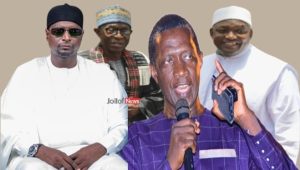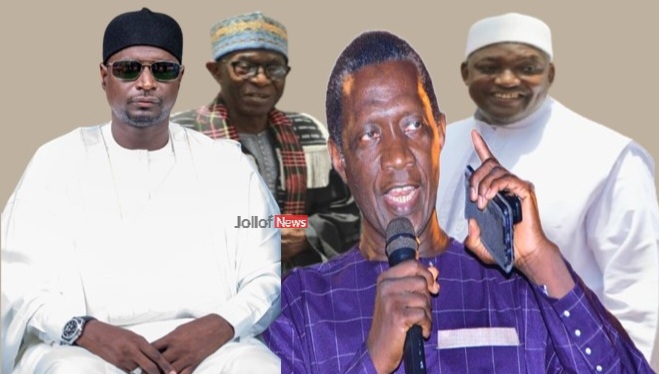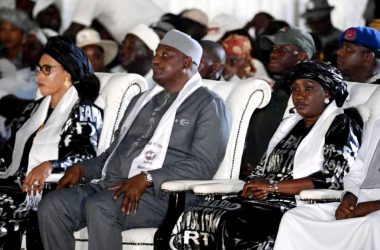The United Democratic Party (UDP) has branded National People’s Party (NPP) politician Seedy SK Njie “a parasite on the Gambian resources” and is preparing to sue him for alleging that the UDP operates a militia to intimidate non-Mandinka Gambians.
The attack came during a heated press conference led by senior UDP official Dr. Lamin Manneh, who dismissed the militia allegation as “dishonourable” and accused Njie of relying on lies to remain politically relevant. “We didn’t have weapons, all we have is the ballot box and we follow the rule of law,” Dr. Manneh said, quoting party leader Ousainou Darboe’s instruction to “obey the law, respect the law.” He vowed the lawsuit would force Njie to prove his words in court.
Dr. Manneh said the press conference was not only to reject the militia claim but to expose what he called Njie’s long record of opportunism. He recalled the 2016–2017 political impasse, accusing Njie of being a close ally of former president Yahya Jammeh and serving as Information Minister to carry out “sycophancy and hypocrisy.”
According to Dr. Manneh, Njie and Fabakary Tombong Jatta were key in declaring a state of emergency to keep Jammeh in power, an action he said spread fear across the country and drove many Gambians into exile.
He further alleged that Njie fled The Gambia with Jammeh in 2017 but returned when it became clear President Adama Barrow would not prosecute former regime officials. Upon his return, Manneh claimed, Njie and Jatta met with Barrow and offered to help him stay in power if he removed the UDP from government. Manneh argued this was the start of the “corruption, the impunity and the tribal politics” now plaguing the country, with Njie and Jatta as its “architects.”
Manneh also accused Njie of halting the construction of a maternity ward in Nianija because the project would not carry the NPP’s name or Njie’s own. He said such actions showed Njie’s willingness to place personal and partisan gain above public good.
Turning back to the militia claim, Manneh said if the UDP really maintained such a force, the government would have already arrested its members and banned the party. He referenced the killing of two Police Intervention Unit (PIU) officers, which the UDP publicly condemned, as an example of what he described as state efforts to link the party to violence.
He accused government spokesperson Ebrima G. Sankareh of attempting to frame the UDP for the murders, claiming a young man was wrongfully accused while the real aim was to “tarnish the name of the UDP” ahead of elections.

Manneh argued the government’s fear of losing in a “free and fair election” was behind the smear campaigns. He warned that such tactics would fail and declared that “stealing elections is over in this country.”
Confident of a UDP victory in 2026, Manneh said the planned lawsuit will put an end to what he called Njie’s “false and parasitic politics” by forcing him to back his allegations with evidence.





